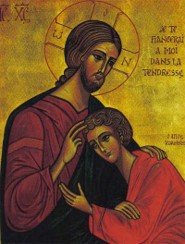Volume III: The Church
Overview
… the person who becomes a disciple of Christ has the right to receive ‘the word of faith’ not in mutilated, falsified or diminished form, but whole and entire, in all its rigor and vigor.” John Paul II
This is volume 3 in our Magisterium Summaries series, as we continue in this effort, it is important that we keep before us the question: “What is the purpose?” Pope John Paul II puts his finger on the core of the problem in today’s society:”The temptation today is to reduce Christianity to merely human wisdom, a pseudo-science of wellbeing. In our heavily secularized world ‘a gradual secularization of salvation’ has taken place so that people strive for the good of man, but man is truncated, reduced to his merely horizontal dimension.”
What is the purpose?
Is missionary work among non-Christians relevant? In response we say yes and even among our own Catholic family a form of missionary work is both relevant and very needed. However, missionary work requires a thorough and complete knowledge of the Official Teaching of the Catholic Church. If we are to have clergy and other religious, and teachers and a laity who can – and are willing to – defend and teach their faith, they must, in the words of Cardinal Hickey, know that faith “deeply and accurately.”
If the purpose of Christ’s life, death and resurrection, i.e., to bring the greatest number of souls to eternal life with the Father, is to be served with maximum effect, then those who have been blessed with the gift of faith, and those who have been privileged with religious vocations, are obliged to do all in their power to preserve and share that faith with others.
George P. Morse, Original Founder of CUSP
Table of Contents
- Vatican Council I, Pastor Aeternus, Dogmatic Constitution on the Church of Christ, July 18, 1870
- Satis Cognitum, Encyclical of Pope Leo XIII on the Unity of the Church, June 29, 1896
- Mystici Corporis, Encyclical of Pope Pius XII on the Mystical Body of Christ, June 29, 1943
- Vatican Council II, Lumen Gentium, Dogmatic Constitution on the Church, November 21, 1964
- Vatican Council II, Orientalium Ecclesiarum, Decree on the Catholic Eastern Churches, November 21, 1964
- Vatican Council II, Unitatis Redintegratio, Decree on Ecumenism, November 21, 1964
- Vatican Council II, Christus Dominus, Decree on the Office of Bishops in the Church, October 28, 1965
- Vatican Council Nostra Aetate, Declaration of the Relation of the Church to Non-Christian Religions, October 28, 1965
- Vatican Council II, Apostolicam Actuositatem, Decree on the Apostolate of Lay People, November 18, 1965
- Vatican Council II, Ad Gentes Divinitus, Decree on the Church’s Missionary Activity, December 7, 1965
- Vatican Council II, Presbyterorum Ordinis, Decree on the Ministry and Life of Priests, December 7, 1965
- Norms for Implementing the Decree on the Church’s Missionary Activity, Paul VI, Ecclesiae Sanctae III, August 6, 1966
- Ecclesiam Suam, Encyclical of Pope Paul VI on the Church, August 6, 1966
- Evangelii Nuntiandi, Post-Synodal Apostolic Exhortation of Pope Paul VI on Evangelization in the Modern World December 8, 1975
- Recentiores Episcoporum Sunodi, Sacred Congregation for the Doctrine of the Faithful on the Reality of Life after Death, May 11, 1979
- Christifideles Laici, Post-Synodal Apostolic Exhortation of Pope John Paul II on the Vocation and the Mission of the Lay Faithful in the Church and in the World, December 30, 1988
- Redemptoris Missio, Encyclical of John Paul II on the Mission of the Redeemer, December 7, 1990
Client View
Are you ready to start?
WE SURE ARE







